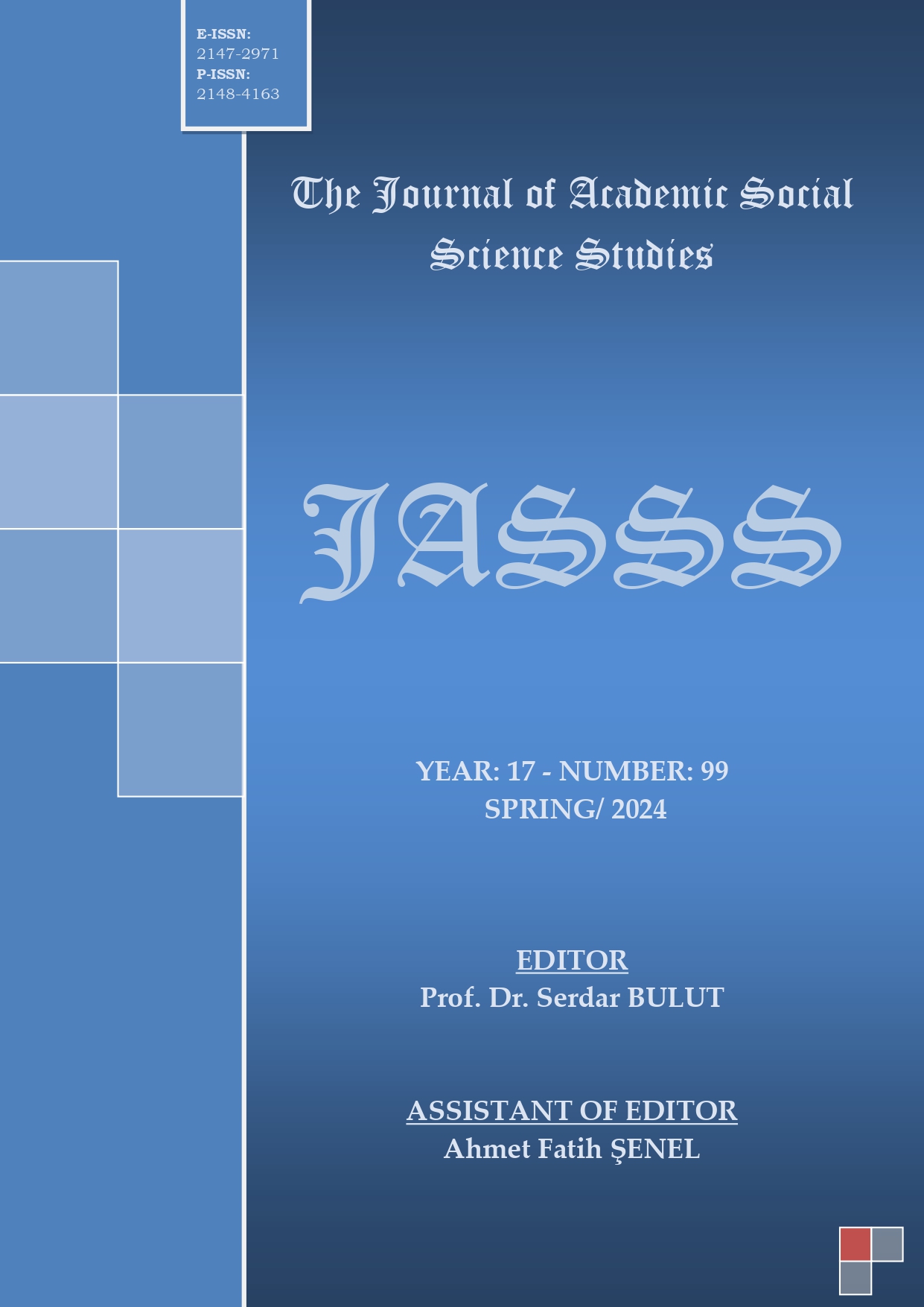SEYİT FEYZULLAH ERZEN’İN MÜZİK ALETLERİNİN ŞER‘Î HÜKMÜ HAKKINDAKİ GÖRÜŞLERİ: “AL-KAVLÜ’N-NÂHÎ ANI’L-ÂLÂTI’L-MALÂHΔ ESERİ ÖRNEĞİ
Author :
Abstract
İslam hukukunda, güncel dini sorunların çözümlenmesi için gayret gösterme yükümlülüğü fukahâya aittir. Fukahâ, dinî hükmü talep edilen hususlara yönelik olarak Kur’an ve sünnet ışığında cevaplar vermek zorundadırlar. Ancak söz konusu cevaplar kişinin ilmî kabiliyeti, zaman ve zemine bağlı olarak değişiklik arz edebilmektedir. İslam tarihi boyunca müzik ve müzik aletleriyle ilgili şer‘î hükümlerde yaşanan ihtilaflar günümüze kadar devam etmiştir. Müzik ve müzik aletlerinin hükmü konusunda ortaya çıkan farklı görüşlerden memnun kalmadığı anlaşılan Seyit Feyzullah Erzen bu konuda bir risale yazma ihtiyacı hissetmiştir. Şırnak bölgesinin yetiştirdiği önemli âlimlerinden biri olan Erzen’in hayatı ilim tahsili ve tedrisi ile geçmiştir. Önemli bazı âlimlerden ders okumuş, çok sayıda öğrenci yetiştirmiş ve çok sayıda eser te’lif etmiştir. Bu kapsamda el-Kavlü’n-nâhî ani’l-âlâti’l-melâhî isimli eserinde kendine özgü bir metot uygulamıştır. Hükmü araştırılan konunun tespit ve tahdidi, ilgili nasların detaylıca değerlendirilmesi ve mensup olduğu mezhebin genel kabulüne aykırı olsa bile kanaatini açıkça ortaya koymaktan çekinmemesi metodunun en bariz niteliklerindendir. Bu bakımdan bölgenin yetiştirdiği ender şahsiyetlerden biri olarak kabul edilebilir. Zira klasik düşünce genelde eski âlimlerin genel kabullerini esas almakta, onlara aykırı yeni fikirler ortaya atmaktan çekinmektedir. Söz konusu risale değişik açılardan kendine özgü hususiyetlerle temayüz ettiğinden müstakil bir araştırmayla ilgililerin istifadesine sunulmuştur.
Keywords
Abstract
In Islamic law, the obligation to strive to solve current religious problems belongs to the fuqaha. Fuqaha are obliged to give answers in the light of the Quran and the Sunnah regarding the issues for which religious judgment is requested. However, these answers may vary depending on the person's scientific ability, time and place. Throughout Islamic history, disputes in the religious provisions regarding music and musical instruments have continued until today. Seyit Feyzullah Erzen, who was understood to be dissatisfied with the different views on the ruling of music and musical instruments, felt the need to write a treatise on this subject. Erzen, one of the important scholars of the Şırnak region, spent his life in scientific education and training. He studied under some important scholars, trained many students and wrote many works. In this context, he applied a unique method in his work titled el-Kavlü'n-nâhî ani’l-âlâti’l-malâhî. The most obvious characteristics of his method are the determination and limitation of the subject under investigation, the detailed evaluation of the relevant texts, and the fact that he does not hesitate to express his opinion clearly, even if it is contrary to the general acceptance of the sect he belongs to. In this respect, he can be considered one of the rare personalities raised in the region. Because classical thought generally bases itself on the general acceptances of old scholars and refrains from putting forward new ideas that contradict them. Since the pamphlet in question stands out with its own characteristics from various perspectives, it has been presented to the benefit of those interested in independent research.
